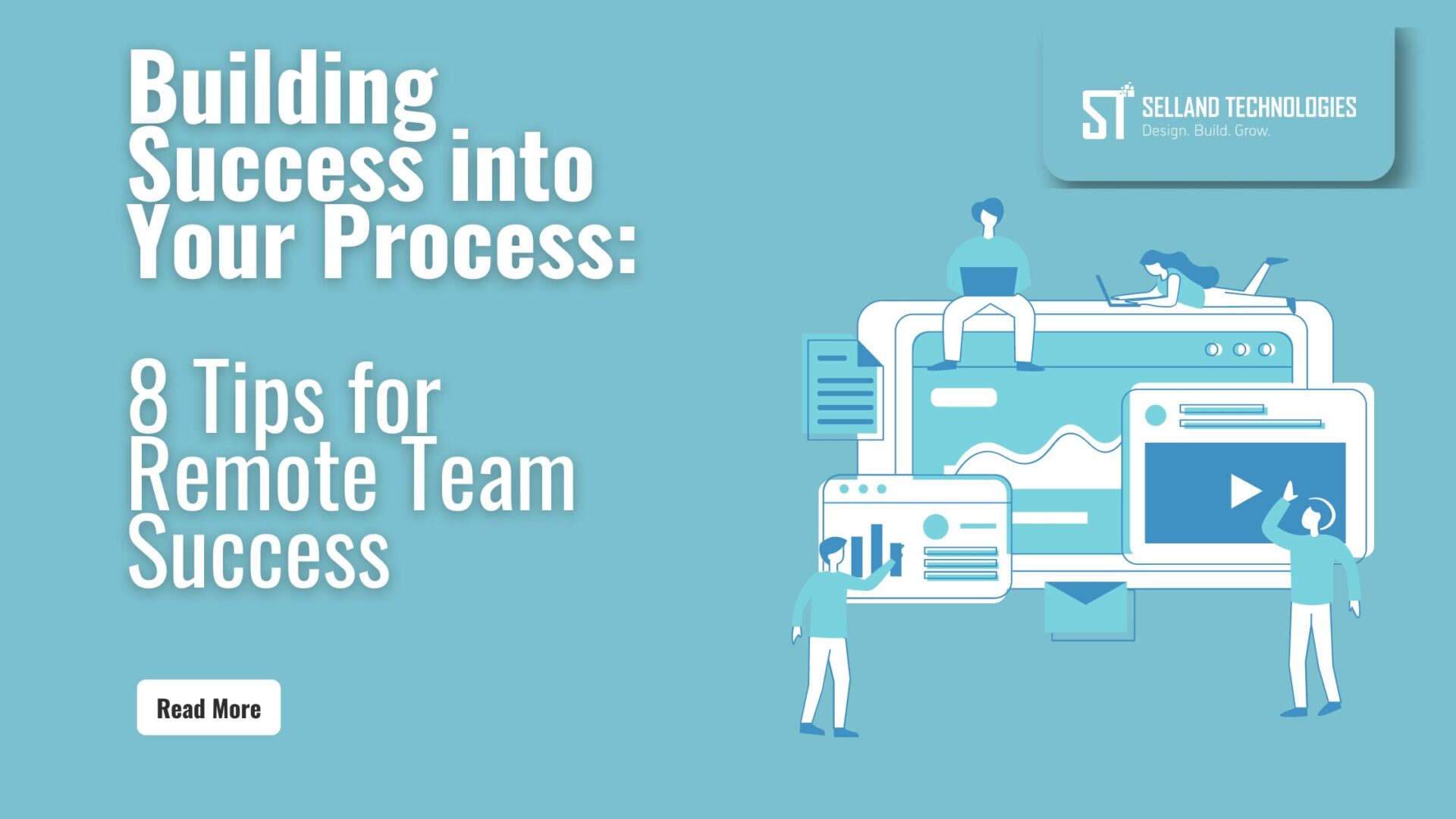Many companies are evolving away from the traditional office model.
Setting up a remote team properly allows for hiring based on character and skill set, rather than being limited to candidates within a specific location. It also fosters a more productive and content work culture.
However, it’s not as simple as assigning tasks and sending everyone home. Remote teams require unique processes and strategy management tools to ensure they feel valued, connected, and productive.
Here are 8 best practices from Selland Technologies for managing our fully remote team:
1. Hire based on character, not location
When hiring for an office-based team, the first thing most employers do is look at each candidate’s skills and experience. However, character and culture fit hold even more value when hiring for remote teams. Communication style, honesty, and transparency are key indicators of success in fully remote roles and are often more indicative of success than the technical skills and experience a team member has.
2. Schedule recurring catch-up meetings
Similar to a shared physical space, remote team members should experience a sense of belonging to a greater collective, eliminating isolation and disconnection from the company culture. Foster human connection and set the cultural tone with recurring one-on-one and team meetings at daily, weekly, and monthly intervals, which allow for these connections to be developed.
3. Set guidelines for communication methods
Remote work demands streamlined communication guidelines. At Selland Technologies, we prioritize transparency, encouraging all communications to occur in public channels fostering stronger team connections and project visibility. While team members may feel as though they are “spamming” the channel at first, over time the consistent communication creates connected teams that are able to follow along with projects even when they are not actively involved.
4. Create a shared workspace
Similar to our communication guidelines, encouraging work and communication to happen in shared workspaces creates a virtual community for the team. We have adopted tools like Slack, Notion, and FigJam to provide collaborative workspaces for the team that facilitate communication synchronously and asynchronously.
5. Diversify your hiring pool
A primary benefit to remote team building is the ability to tap a vast talent pool, not hindered by geographical location. Nonetheless, our experience has revealed that some of the most valuable recruits often come from referrals within our high-achieving team. Observing this, it becomes prudent to consciously infuse diversity within your team, thereby opening doors to fresh communities, cultures, and demographics. We’ve observed that a diverse team not only enhances the quality of our product offerings but also empowers us to swiftly expand and scale our workforce when the need arises.
6. Establish office hours
When surveying the Selland Technologies team, a consistent favorite “feature” of our remote model is the flexibility offered surrounding “working hours.”
Flexibility to attend to personal items, or even just the desire to grab an early dinner should not be hindered, but encouraged when attempting to maximize company “culture.” Facilitate productivity and increase structure by establishing consistent overlapping hours for team members to communicate and prioritize workloads. Find time when people are generally on Slack together, even if they vary by team. These times are not intended to be a work schedule, though the time spent communicating is still recorded. Personal experience precludes that when I can consistently chat with a teammate from 9:00 – 11:00 each morning, I am less likely to bother them when they are eating dinner with their family, and better able to prioritize my tasks to fit my schedule.
7. Track productivity by deliverables, not time
Many businesses track their employees by the number of hours they work. This is especially common in fields like construction and law, where working from 9 to 5 is a given. However, with our remote team, we have found deliverables to be a more effective way of assessing performance. In our line of business as a digital agency and consultancy, hour tracking will always be a necessity, but from a management perspective, we now treat that as purely part of the billing cycle and not a key performance indicator for our team members.
8. Create remote team-building activities
Every team, remote or otherwise, requires periodic investments into the team culture. Office-based teams can often get away with doing this less frequently since team members may take lunch together or go out after work. We have found that hosting regular (daily, weekly or bi-weekly) virtual events is key to helping our teams operate at a high level. Work can be stressful, and teammates need to see each other in different contexts to remember that they are all working toward the same goal.
At Selland Technologies, we believe that remote teams can be even more effective than in-office teams. They provide your company with access to a much larger talent pool as well as substantially more diversity. However, if you attempt to operate with the same principals, tools, and processes that work for an office-based team, most companies will find managing a remote team both challenging and inefficient. By taking a fresh look at your processes, tools, and communication guidelines and perhaps adopting a few of the ideas shared above, you can improve the productivity of your remote team much like we have with ours.
